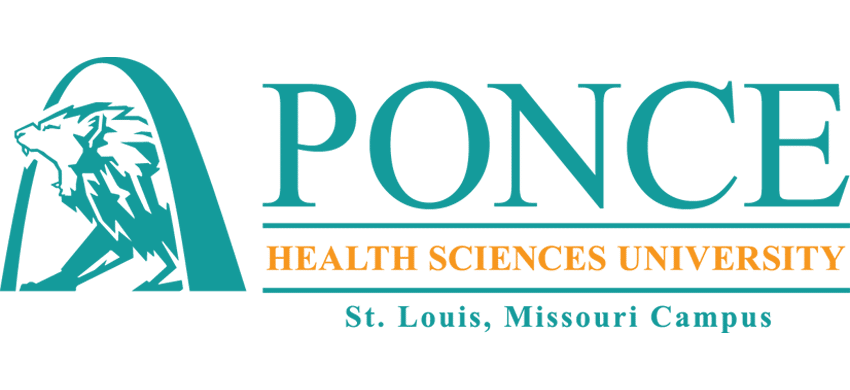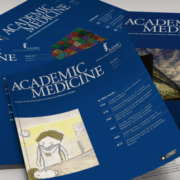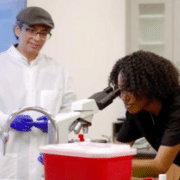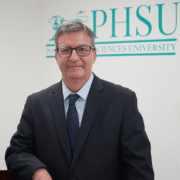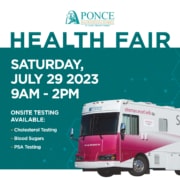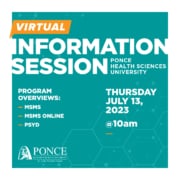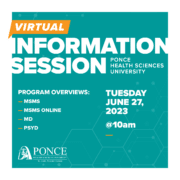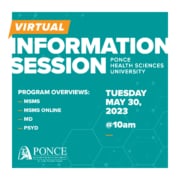The initiative seeks to increase access to medical/healthcare careers for underrepresented groups, which will ultimately improve patient outcomes
St. Louis, Missouri, Oct 18, 2023 – Ponce Health Sciences University (PHSU) and Tiber Health Innovation (THI) announce the publication of a report in Academic Medicine, the flagship journal of the Association of American Medical Colleges (AAMC), titled “Increasing Diversity in the Physician Workforce: Pathway Programs and Predictive Analytics.”
The report presents a model, which is the first and only of its kind, that helps medical schools to increase diversity within their MD programs by creating a Masters-level pathway program coupled with predictive analytics. The model allows MD admissions committees to rely less on the MCAT (which peer-reviewed studies have found to be a weak to moderate predictor of success in medical school, especially for underrepresented groups) and more on performance data when evaluating MD applicants from the pathway program.
“The challenge of achieving ethnic and economic diversity among medical education students has been long-standing, and this research highlights how our approach can level the playing field,” says Dr. David Lenihan, CEO of Tiber Health Corporation and former PHSU President. “We now have tangible proof that a pathway program used with THI’s predictive analytics platform can be an effective way for MD admissions committees to evaluate the capabilities of applicants from underrepresented and lower socioeconomic backgrounds without relying on the MCAT.”
The report presents findings from a 10-year research project being conducted by PHSU and THI. The three phases of the project are (1) creating and implementing a pathway program; (2) building and validating a predictive analytics platform; and (3) working with the MD admissions committee to gain trust and adoption, including ongoing evaluation and monitoring. The project started in 2015 and is in phase 3.
At PHSU, this pathway program is the Master of Science in Medical Sciences (MSMS) degree, which has the same curriculum as year one of PHSU’s MD program. Coupled with THI’s predictive analytics platform, the PHSU MD Admissions Committee has a more data-driven process for evaluating medical school applicants from the MSMS pathway compared to non-MSMS students.
The report analyzed data from 2016-2021 for PHSU’s MD students in Puerto Rico (100% Hispanic with the majority coming from households earning less than $100K per year). Two groups were compared: students who were directly admitted to PHSU MD versus students who went through MSMS before PHSU MD. The non-MSMS students had significantly higher MCAT scores compared to the MSMS students; however, there was no difference in USMLE Step 1 scores when comparing MSMS and non-MSMS groups.
“This finding is important because it confirms our hypothesis that underrepresented students from lower economic backgrounds with below 500 MCAT scores can be successful in medical school and pass the USMLE Step 1 exam,” says Dr. Mayrath. “MD admissions committees that rely on the MCAT can upgrade their evaluation process by implementing this data-driven, performance-based approach. It’s a more accurate measure of the capabilities of MD applicants from lower economic backgrounds who might not fit the traditional profile but possess the proficiencies and ambition to become the future physicians needed for an ever-changing U.S. population.”
PHSU/THI’s goal is to expand this approach across the U.S. by partnering with universities that want to offer the MSMS program to their own students. This expansion launched in 2019 with the creation of the MSMS University Network, which now includes over 400 students and alumni as well as university partners across the country offering their own MSMS degrees. PHSU/THI are seeking more universities to join the MSMS University Network and help address the lack of diversity in the physician workforce. To learn more about the MSMS University Network, visit https://www.tiberhealth.com/services/tiber-network/
About Tiber Health
Tiber Health is a global network of progressive medical universities united in a transformative enterprise to reshape medical education worldwide. With a team of dedicated educators, practitioners, and entrepreneurs, Tiber Health leverages predictive learning analytics to widen access to healthcare education, foster diversity in the physician workforce, and address the global shortage of trained physicians. Tiber’s approach has revolutionized medical education and reduced costs while elevating quality, graduation rates, and U.S. Board scores.
Ponce Health Sciences University (PHSU) is a fully accredited institution with campuses in Puerto Rico and Missouri. PHSU has 15 health education programs, including a LCME accredited Medical School.
Media Contact: Kayleigh Hottel
Email: khottel@tiberhealth.com
